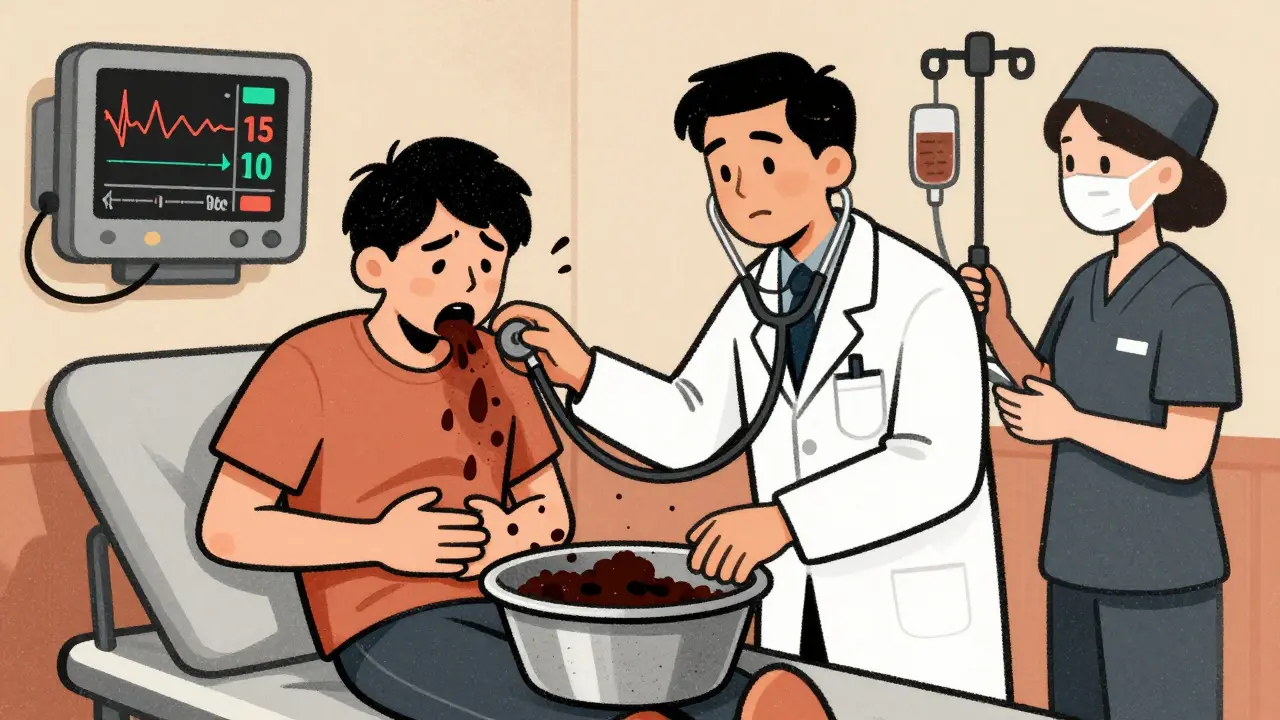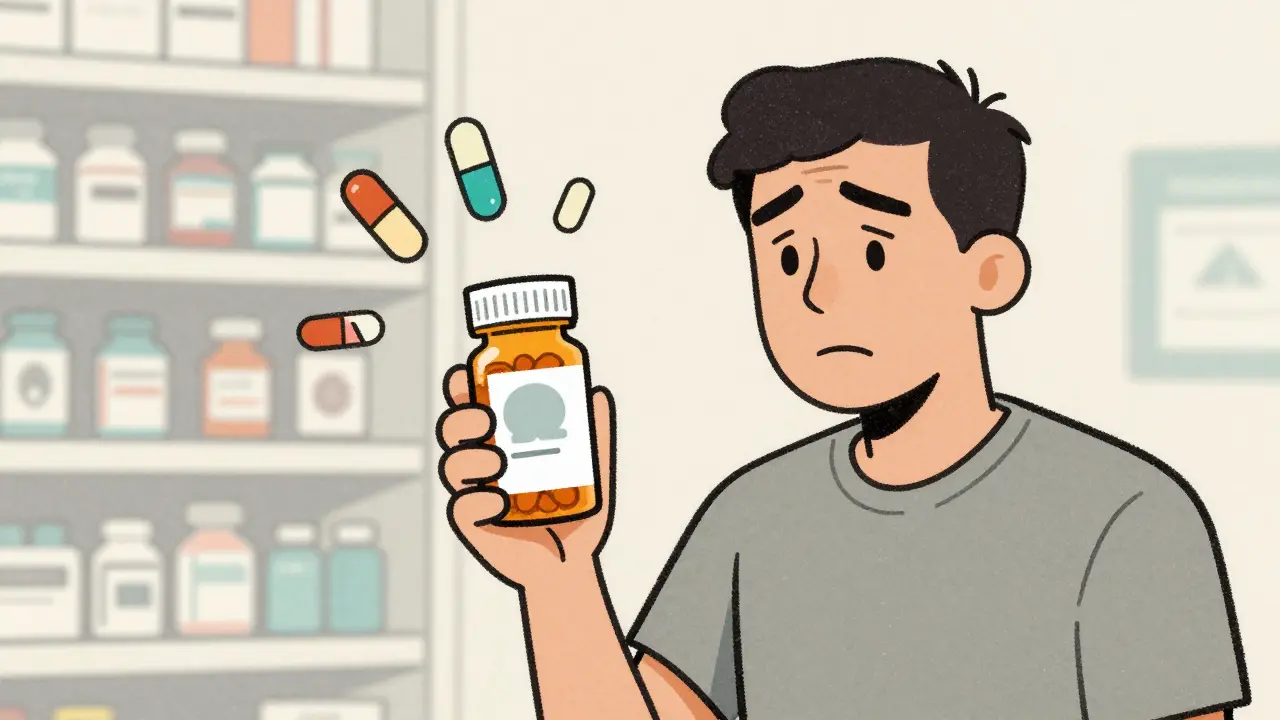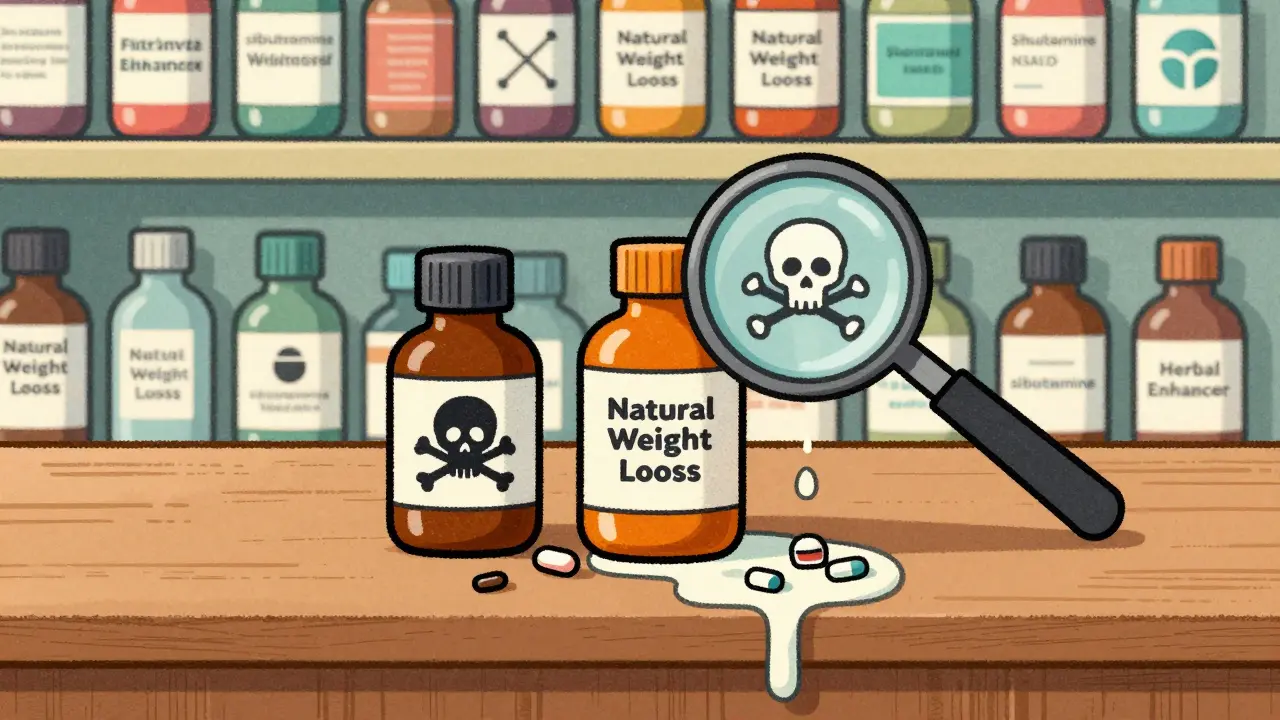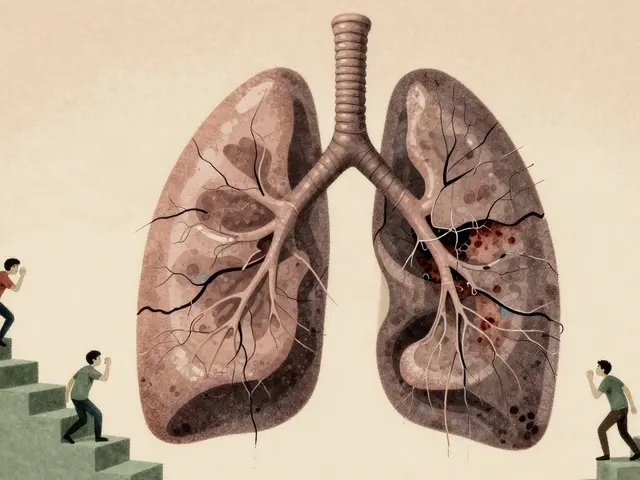HeyDoctor.com: your pharmaceuticals guide - Page 4

- Jan 14, 2026
- Posted by Cillian Osterfield
Upper GI Bleeding: Recognizing Ulcers, Varices, and How to Stabilize Quickly
Upper GI bleeding is a life-threatening emergency caused mostly by ulcers and varices. Recognizing symptoms like coffee-ground vomit or black stools, stabilizing quickly, and getting endoscopy within 12 hours can save lives. Know the signs, act fast.

- Jan 13, 2026
- Posted by Cillian Osterfield
Refractive Errors Explained: How Myopia, Hyperopia, and Astigmatism Are Corrected Today
Myopia, hyperopia, and astigmatism are common refractive errors that blur vision. Learn how glasses, contacts, and modern surgery like LASIK and SMILE correct them - plus what works best for kids and adults.

- Jan 12, 2026
- Posted by Cillian Osterfield
Small Intestinal Bacterial Overgrowth: Breath Tests and Treatment Explained
SIBO is a hidden gut disorder causing bloating, gas, and IBS-like symptoms. Breath tests are the main way to diagnose it, but they're not perfect. Learn how testing works, why treatments succeed or fail, and what's next for SIBO care.

- Jan 11, 2026
- Posted by Cillian Osterfield
How to Report Counterfeit or Tampered Medications: Step-by-Step Guide for Patients and Professionals
Learn how to report counterfeit or tampered medications safely and effectively. Step-by-step guidance for patients, pharmacists, and supply chain workers to help stop dangerous fake drugs from harming others.

- Jan 10, 2026
- Posted by Cillian Osterfield
Excessive Sweating from Antidepressants: Practical Cooling Strategies That Work
Excessive sweating from antidepressants is common, often overlooked, and can lead to quitting treatment. Learn which medications cause it, how to switch safely, and proven cooling strategies that actually work.

- Jan 8, 2026
- Posted by Cillian Osterfield
How to Talk to Your Doctor About Generic vs. Brand-Name Medications
Learn how to talk to your doctor about generic vs. brand-name medications-why generics are just as effective, when to ask for the brand, and how to save money without risking your health.

- Jan 7, 2026
- Posted by Cillian Osterfield
Over-the-Counter Medication Safety: Hidden Ingredients and Interactions You Can't Afford to Ignore
Many over-the-counter supplements contain hidden, dangerous drugs not listed on the label. Learn how to spot contaminated products, avoid deadly interactions, and protect your health from unregulated ingredients.

- Jan 6, 2026
- Posted by Cillian Osterfield
Antibiotic Interactions with Birth Control Pills: What’s Actually Proven
Only rifampin has been proven to reduce birth control pill effectiveness. Most antibiotics, including amoxicillin and doxycycline, do not interfere. Learn the facts behind the myths and what you really need to do.

- Jan 5, 2026
- Posted by Cillian Osterfield
Melanoma: Early Detection and Immunotherapy Treatment
Melanoma is deadly when caught late but nearly 100% curable if found early. Learn how AI, wearable tech, and immunotherapy are changing survival rates-and what you need to do now.

- Jan 4, 2026
- Posted by Cillian Osterfield
Switching from Brand to Generic Drugs: What You Need to Know
Switching from brand to generic drugs saves money, but not everyone has the same experience. Learn when it’s safe, when to be cautious, and what to do if you feel worse after the switch.
Categories
- Health and Wellness (72)
- Medications (72)
- Health and Medicine (28)
- Pharmacy Services (12)
- Mental Health (9)
- Health and Career (2)
- Medical Research (2)
- Business and Finance (2)
- Health Information (2)
Latest Posts
©2026 heydoctor.su. All rights reserved





